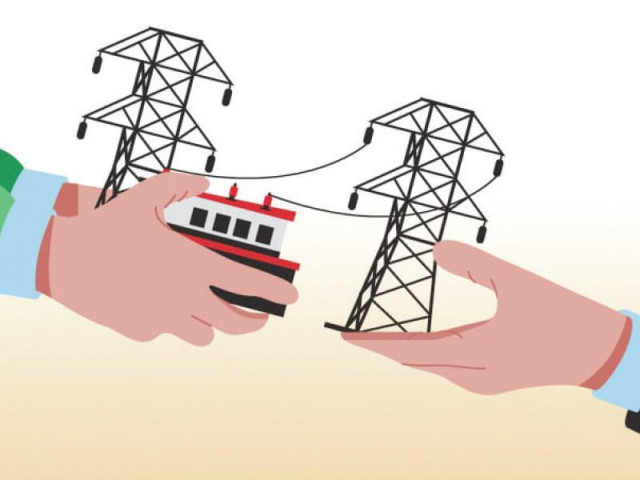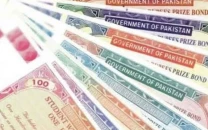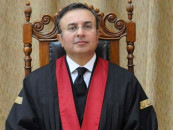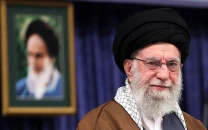Ministry defies PM’s orders on SOEs
Fails to release information in privatisation decisions for 45 entities

In direct violation of Prime Minister Shehbaz Sharif’s orders to ensure maximum transparency in privatisation matters, the Ministry of Finance on Thursday withheld information about the privatisation status of 45 state-owned entities.
Four different ministries sought the Cabinet Committee on State-Owned Enterprises (CCoSOEs)’s decision on whether to privatise nearly 45 entities, retain them as essential, or restructure them. These include Pakistan’s most profitable and highest loss-making entities. Finance Minister Muhammad Aurangzeb chaired the CCoSOEs meeting, one of the two bodies he leads, while Foreign Minister Ishaq Dar chairs two other economic committees. Sources told The Express Tribune that the CCoSOEs decided that the majority of these entities would be privatised. However, the Ministry of Finance released a terse statement without detailing the entities or the decisions made.
“The Cabinet Committee approved the summaries presented by the Power Division, Ministry of Industries & Production, and the Ministry of Overseas Pakistanis & Human Resource Development, while the agenda of the Petroleum Division was deferred for further deliberations,” according to the finance ministry.
Despite the prime minister’s directive to ensure complete transparency and gain public support for the privatisation agenda, the Ministry of Finance’s bureaucracy appears to be working against the government’s agenda. Among the 45 entities are the highly profitable Oil and Gas Development Company, which made Rs225 billion in profits, and the second-highest loss-making Quetta Electric Supply Company, which incurred over Rs88 billion in losses.
For reasons known only to bureaucrats, the Ministry of Finance did not officially release these details. However, Power Division sources indicated that a total of 25 entities under its administrative control were presented to the committee. The Power Division proposed privatising 13 entities in the distribution and generation sectors, but the committee decided to privatise nearly 16, with two first undergoing restructuring. The Power Division recommended that six companies be declared essential, four be restructured and retained by the government, and two others, the National Energy Efficiency and Conservation Authority and the Private Power Infrastructure Board, are statutory bodies.
The committee approved the privatisation of FESCO, GEPCO, HESCO, IESCO, LESCO, MEPCO, PESCO, and HAZECO, which were already on the privatisation agenda, according to the sources. It also decided to privatise the Jamshoro Power Company Limited (Genco-I), Central Power Generation Company Limited (Genco-II), Northern Power Generation Company Limited (Genco-III), and Lakhra Power Generation (Genco-IV). The Power Division proposed restructuring and retaining QESCO, TESCO, the National Transmission and Dispatch Company, and National Engineering Services Pakistan Limited, but the committee decided that QESCO and TESCO should be restructured with an aim to privatise. The Power Division also proposed declaring Power Holding Limited (PHL), Central Power Purchase Agency (CPPA-G), Genco Holding Company Limited, Power Planning and Monitoring Company, and Power Information Technology Company as essential.
In previous meetings, the CCoSOEs recommended liquidating three out of 14 entities debated. Sources said the committee decided that the Export Processing Zone Authority (EPZA)’s regulatory functions be retained by the government while its development function should be separated. It was also decided to reconstitute the board of the Small and Medium Enterprises Development Authority (SMEDA) in line with the SOEs Act by separating the chairman and chief executive positions.
The Petroleum Division presented cases of 13 SOEs, most of them profitable. Despite their boards’ recommendations, the Petroleum Division proposed privatising the majority. However, it did not recommend privatising companies placed under the Sovereign Wealth Fund by the Special Investment Facilitation Council.
Sources said the committee approved privatising Saindak Metals Limited (SML) and Pakistan Mineral Development Corporation (PMDC). Some entities will be discussed again in the presence of the petroleum minister. The Petroleum Division proposed privatising Pakistan State Oil while retaining Sui Northern Gas Pipelines Limited and privatising Sui Southern Gas Company Limited. It suggested offloading the government’s 60% share in Pak-Arab Refinery Limited, subject to Abu Dhabi Petroleum Investment Company’s consent, which holds 40% stakes.
The Petroleum Division also recommended privatising the State Petroleum Refining and Petrochemical Corporation. The Oil and Gas Development Company Limited (OGDCL), Government Holding Pvt Limited, InterGas Services Limited, and Pakistan Petroleum Limited are placed under the Sovereign Wealth Fund.
The Ministry of Overseas Pakistanis owns three entities—the Overseas Employment Corporation, the Overseas Pakistanis Foundation, and the Pakistan Real Estate Investment Management Company (PRIMACO). The committee viewed that these functions could also be performed by the private sector, with no need to declare these firms essential. However, the ministry recommended retaining all three entities in the public sector.



















COMMENTS
Comments are moderated and generally will be posted if they are on-topic and not abusive.
For more information, please see our Comments FAQ